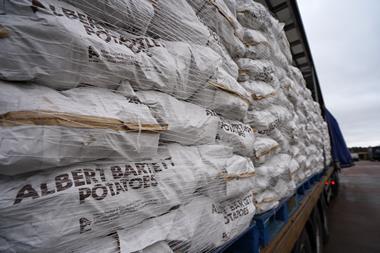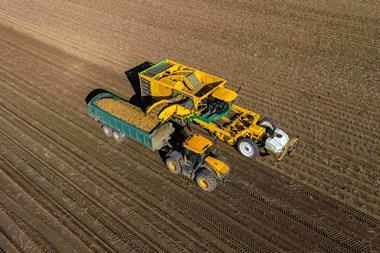The collapse of the Doha round of WTO talks last week has been met with a mixture of relief and disappointment by the UK farming industry.
The Scottish and Welsh farming unions both welcomed the end of talks. “With the agrifood sector vitally important to Wales, the collapse of the talks is truly in our national interest,” said Gareth Vaughan, president of the FUW, who argued the proposed deal to liberate world trade would have led to a flood of imports from outside the EU and threatened 100,000 European agricultural jobs.
The talks had also represented a bad deal for Scotland, said Scottish NFU president Jim McLaren. The proposals would have “opened up the EU market to greater competitive pressure and posed significant challenges for those producing beef, pork, milk, poultrymeat and eggs in Scotland”, he said.
While many farmers were not averse to the notion of the liberalisation of trade, European pig-producing nations would not have been competing on a level playing field if the talks had succeeded, said Yorkshire pig producer Richard Longthorpe. “It’s fundamentally flawed to expect us to go into the boxing ring with our hands tied behind our backs,” he said.
However, the English farmers’ union, the NFU, voiced concerns that the absence of a multilateral trade deal would lead to the emphasis shifting to bilateral trade agreements where the issue of trade-distorting agricultural support was not addressed.
The UK government was deeply disappointed by the collapse of the negotiations, said international development secretary Douglas Alexander, describing it as a lost opportunity for consumers and world business.
Following nine days of discussions, negotiations collapsed after the United States failed to reach agreement with India and China over the application of import tariffs by developing countries faced with import surges and falling prices.
The Scottish and Welsh farming unions both welcomed the end of talks. “With the agrifood sector vitally important to Wales, the collapse of the talks is truly in our national interest,” said Gareth Vaughan, president of the FUW, who argued the proposed deal to liberate world trade would have led to a flood of imports from outside the EU and threatened 100,000 European agricultural jobs.
The talks had also represented a bad deal for Scotland, said Scottish NFU president Jim McLaren. The proposals would have “opened up the EU market to greater competitive pressure and posed significant challenges for those producing beef, pork, milk, poultrymeat and eggs in Scotland”, he said.
While many farmers were not averse to the notion of the liberalisation of trade, European pig-producing nations would not have been competing on a level playing field if the talks had succeeded, said Yorkshire pig producer Richard Longthorpe. “It’s fundamentally flawed to expect us to go into the boxing ring with our hands tied behind our backs,” he said.
However, the English farmers’ union, the NFU, voiced concerns that the absence of a multilateral trade deal would lead to the emphasis shifting to bilateral trade agreements where the issue of trade-distorting agricultural support was not addressed.
The UK government was deeply disappointed by the collapse of the negotiations, said international development secretary Douglas Alexander, describing it as a lost opportunity for consumers and world business.
Following nine days of discussions, negotiations collapsed after the United States failed to reach agreement with India and China over the application of import tariffs by developing countries faced with import surges and falling prices.

















No comments yet